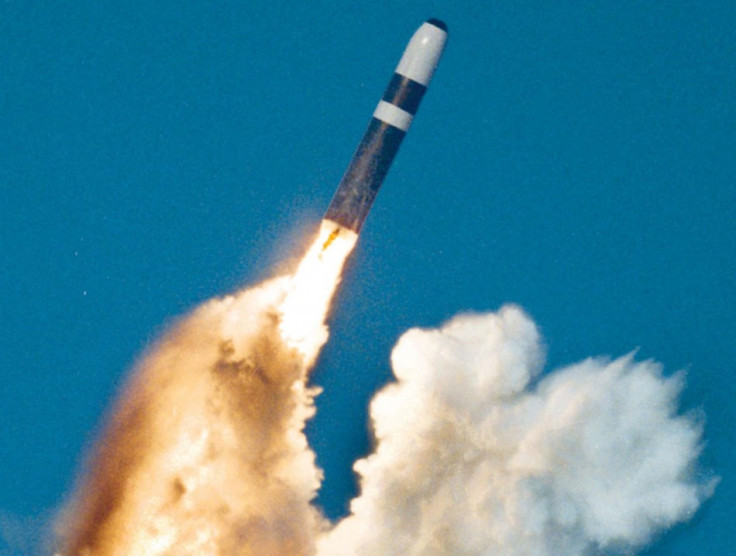Scotland's Chance to Save Britain from Nuclear Folly [BLOG]
A yes vote for Scottish independence could see Trident nuclear missiles kicked out of the Clyde, says James Kelly

A few days ago, I watched two films from the 1980s depicting the likely effects of global nuclear war. They've haunted my thoughts ever since and reawakened memories of a long-buried terror from my childhood.
Strangely, the sequences that disturbed me most were not of death, or devastation, or radiation sickness, but rather of the pre-recorded radio and TV broadcasts prior to the war. Probably that's because we all know those recordings really existed - indeed, the BBC film Threads uses the actual Protect and Survive public information films that were to be shown if a nuclear attack on the UK was considered imminent.
A popular book about atomic weapons in the early 1980s made reference to a survey that asked people if they thought it was likely that a nuclear war between the US and Soviet Union would occur within their lifetimes. The outcome was an even split. The point made by the book was that if humanity were facing a crisis that half the population expected would end the world, it was surely self-evident that resolving the crisis ought to be the priority of all governments.
The reality was different. It wasn't until Ronald Reagan watched The Day After, one of the two films I watched recently, that a US president really "got it" and started taking a few rational steps towards reducing the threat.
Every single one of us is a beneficiary of that epiphany, and as a result far fewer than 50% of the population would anticipate a civilisation-ending nuclear war if a similar survey were conducted now. But are we really in that much better a position than we were 30 years ago? What rewatching the films has brought home to me is that even I, someone who thinks that there is no more important issue than nuclear disarmament, has slipped into denial. I've been seduced into the false comfort of subconsciously thinking of nuclear weapons as a threat mostly in the past tense - one that must still be dealt with, but perhaps at a more leisurely pace over lunch.
Mutually Assured Destruction
The brutal truth is that in essence, nothing has really changed. There are still thousands of weapons capable of blowing us all to kingdom come. The end of the Cold War hasn't resolved humanity's greatest problem.
So what should we be doing? The first step is to look at the Cold War experience in a clear-sighted way and reject the idiotic suggestions that Mutually Assured Destruction somehow "worked". The only conceivable hope for our long-term safety rests on the total or near-total elimination of nuclear weapons.
Paradoxically, the greatest roadblock to achieving that objective is not the US or Russia, but middle-ranking nuclear powers such as Britain. President Obama has openly talked of a long-term target of reducing the global nuclear arsenal to zero but that cannot happen for as long as it's impossible for any party leader to get elected in Britain without reaffirming the commitment to a "minimum nuclear deterrent" - which means no disarmament at all.
There is a small glimmer of hope on the horizon. If Scotland votes for independence next year and demands that Trident be removed from the Clyde, there would be no obvious alternative base for Britain's nuclear weapons. It's just conceivable that Westminster politicians might take that to their electorate who might be prepared to accept disarmament. If so, the independence referendum is a de facto vote on whether the UK should become only the second country to unilaterally give up its own nuclear weapons.
Before performing his biggest U-turn in a desperate search for electability, Neil Kinnock famously put his finger on what is at stake in the nuclear age. "I would die for my country, but I could never let my country die for me," he said. I can only hope that Scottish voters realise just how many peace-loving citizens around the world would die to have such an opportunity to make a real difference.
James Kelly is author of the Scottish pro-independence blog, SCOT goes POP! Voted one of the UK's top political bloggers, you can hear more from James on Twitter: @JamesKelly
© Copyright IBTimes 2025. All rights reserved.






















